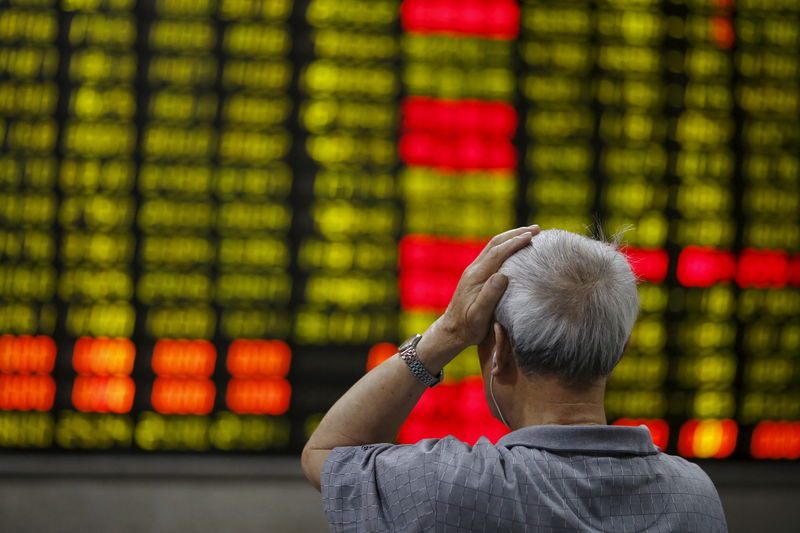This post was originally published on this site

Regional stocks took a weak lead-in from Wall Street, with heavyweight technology stocks under pressure as a rout in global bonds pushed up yields. This was exacerbated by Fed officials reiterating plans to keep interest rates higher for longer.
Concerns over an escalation in the Israel-Hamas war also kept sentiment on edge, especially after a deadly strike on a Gaza hospital. Fears that the conflict will spill over into other Middle Eastern countries had been a major weight on sentiment over the past week.
Markets were also on edge over a major default in China’s property sector, after beleaguered developer Country Garden (HK:2007) appeared to have missed a payment on its offshore bonds.
Hong Kong’s Hang Seng index severely lagged its peers, sinking 2.1%. Major Hong-Kong listed electric vehicle makers fell sharply tracking a drop in Tesla (NASDAQ:TSLA), after the electric car maker logged a weaker-than-expected third quarter.
South Korea’s KOSPI lost 1.5% on weakness in major chipmaking stocks. Market took few cues from the Bank of Korea keeping interest rates on hold.
Weakness in tech pulled Japan’s Nikkei 225 down 1.6%, although Japanese stocks were also spooked by a former Bank of Japan official saying that the bank’s negative interest rates could end as soon as this year.
Futures for India’s Nifty 50 index pointed to a weak open, likely indicating weakness in heavyweight tech stocks.
Asian tech stocks were slammed by a spike in bond yields, particularly Treasuries, as markets priced in the potential for higher U.S. interest rates. Benchmark 10-year yields hit an over 16-year high, while 10-year rates on Japanese and Australian bonds also hit multi-year peaks.
Fed Chair Jerome Powell is set to speak at the Economic Club of New York later in the day and potentially offer more cues on the path of interest rates. But given that recent data showed continued stickiness in U.S. inflation, Powell is widely expected to reiterate his higher-for-longer stance on rates.
Higher rates bode poorly for stock markets, given that they limit the liquidity and also make bonds appear more appealing for returns.
China’s Shanghai Shenzhen CSI 300 and Shanghai Composite indexes fell about 1.1% and 0.9%, respectively, amid growing concerns over a default by Country Garden. A deadline for a crucial offshore coupon payment passed this week with no signs that it had been honored.
Concerns over China spilled over into Australia, with the ASX 200 losing 1.3%. Losses in commodity prices weighed heavily on local mining heavyweights.
A series of middling quarterly earnings from U.S. banks also weighed on Asian bank stocks, especially amid signs that credit growth appeared to be slowing amid high interest rates.


